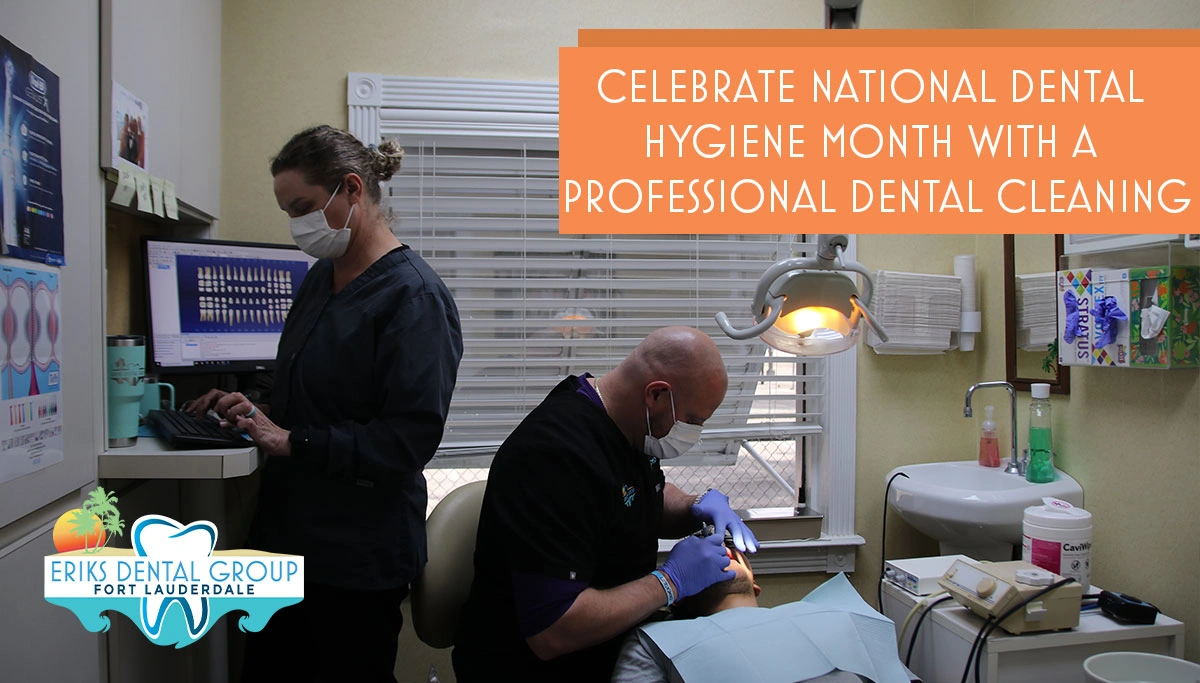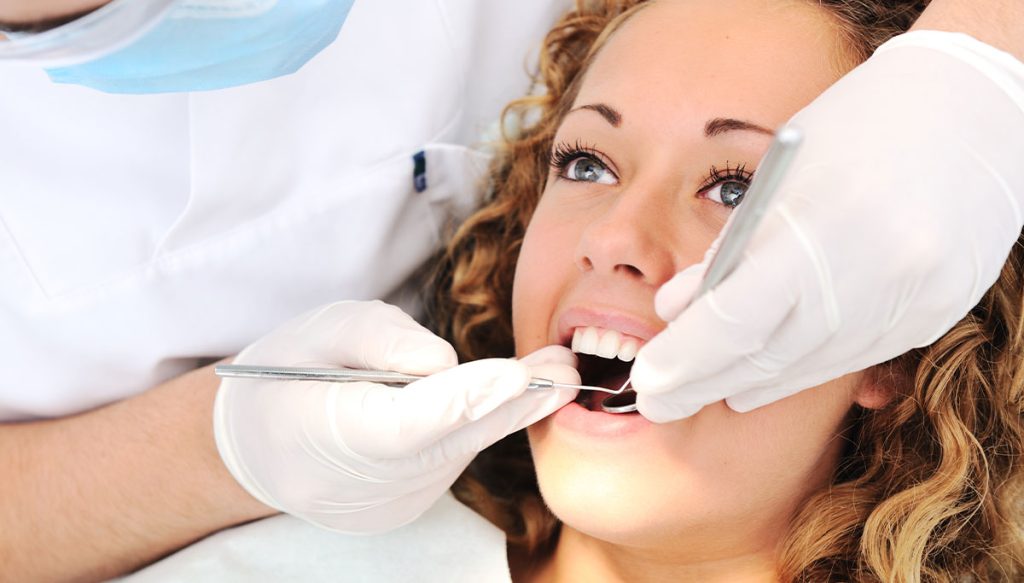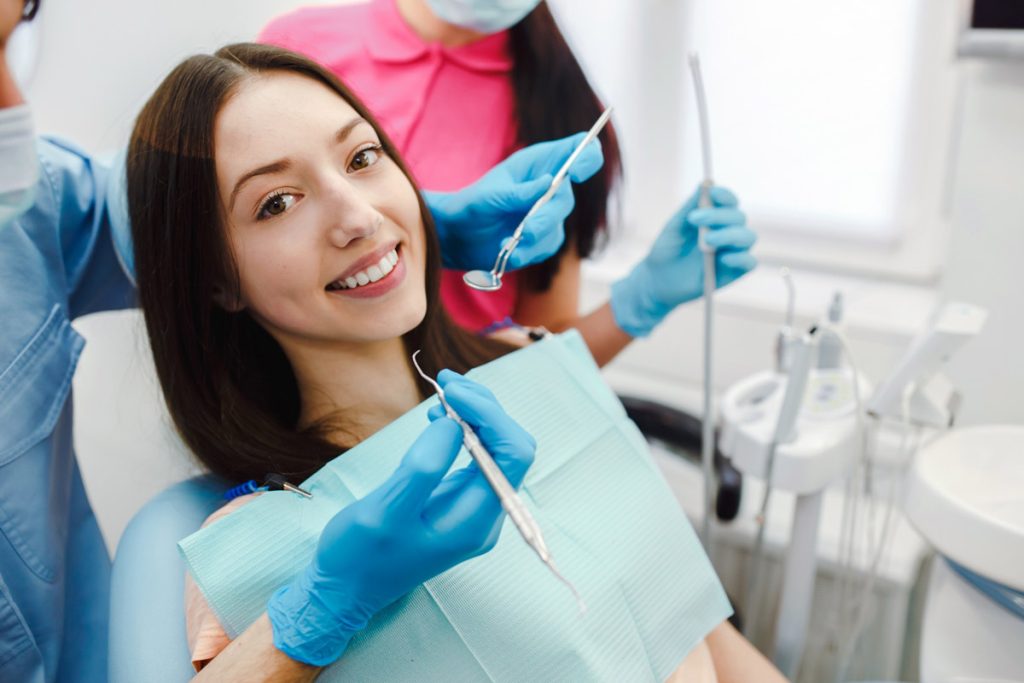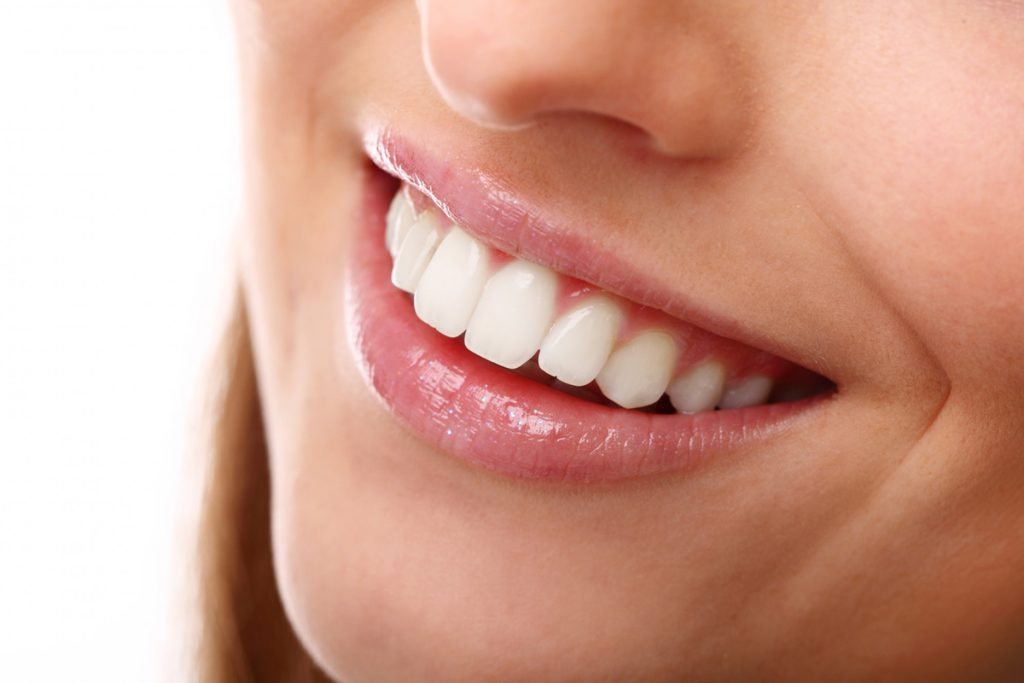
Did you know your mouth can be a window into your overall health? Oral problems don’t just stay in your mouth; they can affect your entire body. October is National Dental Hygiene Month, with the key message: “Brush, Floss, and Visit.” This campaign raises awareness of the strong link between oral and overall health. It highlights why preventative dentistry is essential to every health plan, starting with regular dental cleaning.
No matter how carefully we clean our teeth at home, bacteria from saliva and sticky plaque can still build up on tooth surfaces and along the gum line. If not removed, this buildup can lead to cavities and tooth decay. Plaque left unchecked hardens into tartar, which is impossible to remove at home. While dental hygiene begins at home, routine dental care also requires a dental cleaning by a qualified hygienist.
Here’s what you can expect during a professional dental cleaning:

Once comfortably seated in the dental chair, a thorough examination of your mouth and teeth will be conducted by your dental hygienist. The examination will search for weak spots in the enamel and signs of decay and investigate any areas that need specialized cleaning.
Scaling, also called deep dental cleaning. It is a procedure that removes plaque and tartar (hardened plaque) from the surfaces of your teeth, including the front, back, and sides, and below the gum line. It reaches inside hard-to-reach gum pockets. Dental hygenists use specialized tools, such as scalers or ultrasonic devices to clear this buildup effectively. Regular scaling helps prevent gum disease, reduces the risk of tooth decay, eliminates stains, and can even improve bad breath.
Tooth polishing is the next step, leaving your teeth feeling smooth and glossy. The two common methods of polishing are:
Both methods gently clean the teeth and remove any staining on the teeth. Tooth polishing is not purely for cosmetic reasons. While polishing significantly improves the appearance of your teeth, it removes plaque and biofilm at the same time.

Flossing is an important step in every professional dental cleaning. While many patients floss at home, a hygienist’s technique reaches deeper between the teeth and along the gum line. This allows them to spot potential problem areas, such as early signs of gum disease, while ensuring no plaque, food debris, or polishing paste is left behind.
Fluoride treatment is the final step of your dental cleaning and is beneficial for both children and adults. The process involves applying a protective fluoride gel, foam, varnish, or paste to the teeth. These substances are either dispensed in a custom tray or painted directly onto the teeth.
Fluoride is a mineral found in water and foods such as shrimp, tea, grapes, raisins, spinach, and potatoes.
Fluoride strengthens and remineralizes tooth enamel, making teeth more resistant to acid attacks from plaque bacteria and sugars, which helps prevent cavities.
During a dental visit, an oral cancer screening is performed through a thorough examination to detect any abnormal tissue changes, including lumps, sores, or red and white patches. Early detection is critical, as oral cancer can progress rapidly. Identifying it early significantly increases treatment success and reduces the risk of complications.
The process typically includes:

A professional dental cleaning does more than leave your teeth clean, it protects your overall health. Poor dental hygiene can affect your health, and neglecting oral care doesn’t just harm your teeth and gums; it can also affect your whole body.
Regular cleanings remove plaque and tartar that can’t be eliminated at home, reducing the risk of cavities, tooth decay, and gum disease.

Keep your smile healthy and bright with regular professional cleanings at Eriks Dental Group. Prevent problems before they start and give your teeth the care they deserve. Call us today at 954-463-5051 to schedule your appointment or request an appointment online.
© 2026 Eriks Dental Group - Fort Lauderdale - All Rights Reserved. Dental Website Design by Connectica